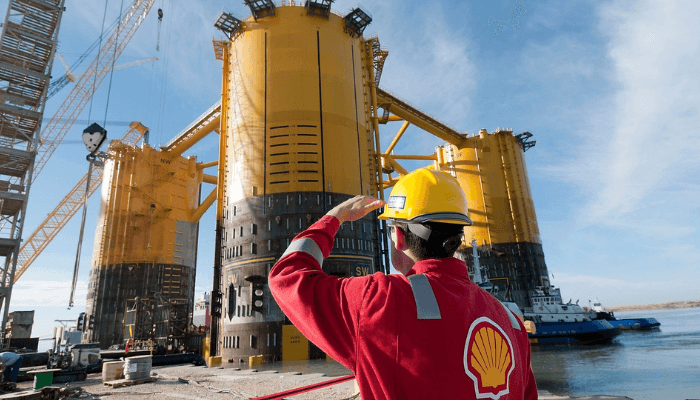Shell gives Nigeria offshore gas deal to US contractor
Shell has tapped Halliburton for a key drilling contract tied to a new offshore natural gas development in Nigeria, marking one of the most significant upstream commitments by the UK energy major in West Africa in recent years.
According to Upstreamonline.com, Halliburton said Wednesday that Shell Nigeria Exploration and Production Company (SNEPCo) awarded it an “integrated drilling services” contract for the shallow-water HI gas project, located in Oil Mining Licence (OML) 144 off the coast of the Niger Delta. Financial terms were not disclosed.
The Houston-based services provider said it will deploy remote operations and automated drilling technologies to improve safety, cut costs and shorten project timelines, an approach that has become increasingly standard among international drillers as operators push for higher efficiency on complex offshore wells.
Shell sanctioned the HI development in mid-October and holds a 40 percent operating stake. Local partner Sunlink Energies & Resources owns the remaining 60 percent. The project is designed to supply up to 350 million cubic feet per day of natural gas to Nigeria LNG’s plant on Bonny Island once operational, Shell said previously. The gas will feed the plant’s long-delayed Train 7 expansion, which is being built by a consortium led by Italy’s Saipem.
Production is expected to start before the end of the decade, according to people familiar with the development plans.
The contract represents a fresh vote of confidence in Nigeria’s energy sector as the government attempts to reverse declining offshore investment and boost gas output. Despite having the largest natural gas reserves in Africa, development has lagged due to infrastructure shortfalls, regulatory uncertainty and years of under-investment.
For Shell, the HI project is part of a broader pivot toward gas and LNG, segments that the company has called central to its long-term portfolio. Shell is already the largest private shareholder in the Bonny Island LNG complex, with a 25.6 percent equity stake, alongside state-backed Nigerian National Petroleum Company, TotalEnergies and Eni.
Read also: FG welcomes $2bn Shell new offshore final investment decision
The additional supply from HI is expected to improve feedstock availability for Train 7, a key growth initiative for Nigeria LNG that aims to lift the plant’s total liquefaction capacity by more than 30 percent. The expansion has suffered multiple delays due to pandemic disruptions, financing challenges, and contractor issues.
Nigeria’s government has been aggressively pushing to bring more gas to market as part of its “Decade of Gas” initiative, designed to reduce gas flaring, expand domestic power generation, and increase exports. Earlier this year, President Bola Tinubu’s administration introduced policy incentives to attract new investment from international oil companies, including the possibility of special tax relief for gas-related projects.
Halliburton’s award also underscores the rising use of remote and automated operations, particularly in regions where logistics and offshore support can be challenging. Executives at the service company have been promoting automation for years as a way to reduce exposure of personnel to high-risk offshore environments.
Neither Shell nor Halliburton disclosed timelines for drilling activities, but initial field development work is expected to begin in 2025, according to industry analysts.
If successfully executed, HI would represent a meaningful boost to Nigeria’s LNG exports at a time when global buyers, particularly in Europe, are seeking more diversified gas supply sources in the wake of geopolitical tensions that have disrupted broader energy markets.

